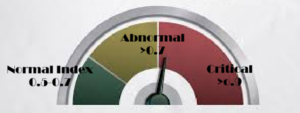In the healthcare sector, organizational culture is a critical determinant of patient outcomes, staff satisfaction, and operational efficiency. While strategic leadership is crucial, the true catalyst for cultural transformation lies in the active involvement of leaders who prioritize actionable education to foster better teamwork and collaboration. This focus is essential for improving team dynamics, which ultimately leads to a higher quality of care and a more effective healthcare organization.
Leadership Involvement: Beyond Strategy to Action Healthcare
leaders often focus on strategic planning, setting goals for patient care, safety, and efficiency. While these strategies are necessary, they are insufficient to drive the deep cultural changes required for sustained improvement. Culture in healthcare is not merely about policies and protocols; it is about the everyday behaviors, attitudes, and interactions of staff members. Leaders in healthcare must actively engage in the culture they wish to cultivate. This means demonstrating the values of empathy, collaboration, and continuous improvement in their daily actions. When leaders model these behaviors, they set a powerful example for the entire organization, creating a foundation for meaningful cultural change.
Actionable Education: The Core of Cultural Transformation
At the heart of transforming healthcare culture is the commitment to actionable education. This involves equipping healthcare professionals with practical skills and knowledge that can be immediately applied to their work. For instance, training programs focused on effective communication, teamwork, and conflict resolution are essential. Such education goes beyond theoretical knowledge, emphasizing real-world applications. For example, role-playing scenarios in patient care can help staff practice and refine their communication and collaboration skills. When leaders participate in these educational initiatives, it reinforces their importance and signals a collective commitment to improvement.
Improving Team Dynamics Through Continuous Learning
Continuous learning is vital in healthcare, where the stakes are high, and the environment is constantly evolving. By focusing on actionable education, healthcare leaders can significantly enhance team dynamics. Improved communication and collaboration lead to better patient outcomes, as well as a more supportive and efficient work environment. For instance, multidisciplinary team meetings and collaborative care planning can foster a more integrated approach to patient care. When team members understand their roles and communicate effectively, it reduces errors, improves patient safety, and enhances the overall quality of care.
Sustaining Cultural Change in Healthcare
Sustaining cultural change in healthcare requires ongoing effort and commitment from leadership. Regular assessments of the organizational culture, alongside open channels for feedback, are crucial. Healthcare leaders should encourage staff to share their experiences and suggestions for improvement, creating a culture of transparency and continuous development. Celebrating successes and recognizing the contributions of healthcare professionals are also vital. Positive reinforcement not only boosts morale but also reinforces the behaviors and attitudes that contribute to a positive culture. For instance, recognizing a team for their exceptional collaborative efforts in patient care can inspire others to follow suit.
Conclusion: Leadership and Actionable Education as Drivers of Healthcare Transformation
In conclusion, transforming the culture in healthcare organizations depends on leadership that moves beyond strategic planning to active engagement in daily practices. By prioritizing actionable education, healthcare leaders can empower their teams with the skills needed to improve communication and collaboration. This approach enhances team dynamics, leading to better patient outcomes and a more effective organization. The active involvement of leaders in fostering a culture of continuous learning and improvement is the key to achieving lasting cultural transformation in healthcare, ultimately benefiting both patients and staff alike.




